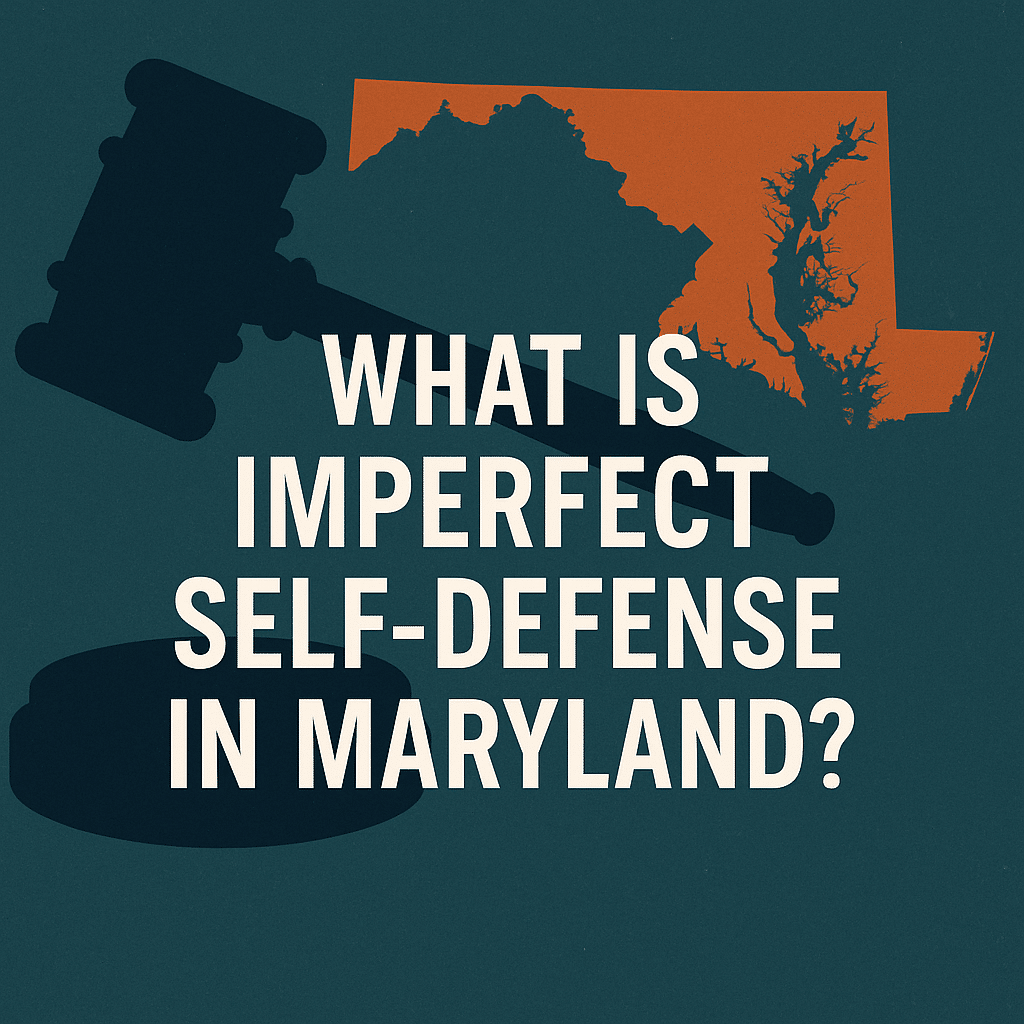
In Maryland criminal law, imperfect self-defense is a partial defense that can reduce a murder charge to manslaughter — but it will not lead to a full acquittal. Unlike perfect self-defense, which can justify a killing and result in a not guilty verdict, imperfect self-defense acknowledges that the accused had an honest belief that force was necessary, even if that belief was objectively unreasonable.
Understanding how this doctrine works can be the difference between a life sentence and a significantly lesser penalty. If you’re facing homicide or assault charges and believe self-defense may apply, knowing the role of imperfect self-defense in Maryland law is critical.
Perfect vs. Imperfect Self-Defense in Maryland
In Maryland, perfect self-defense is a complete defense that can result in an acquittal if the defendant can prove:
- They were not the aggressor;
- They had a reasonable belief that deadly force was necessary;
- The threat was imminent;
- The force used was proportional.
In contrast, imperfect self-defense applies when:
- The defendant honestly believed they were in danger and needed to use deadly force;
- But that belief was unreasonable under the circumstances;
- And the defendant was not the initial aggressor.
This defense does not justify the killing — instead, it mitigates the crime, usually reducing first- or second-degree murder to voluntary manslaughter.
Legal Consequences of Imperfect Self-Defense
If a jury accepts a claim of imperfect self-defense, the defendant is not acquitted but may be convicted of a lesser offense. For example:
- A person charged with second-degree murder may be found guilty of voluntary manslaughter instead;
- This significantly reduces the potential sentence;
- It may also affect eligibility for parole and early release programs.
In practical terms, invoking imperfect self-defense can shave years or decades off a prison term.
When Imperfect Self-Defense Applies
Courts in Maryland have recognized imperfect self-defense in situations involving:
- A genuine fear of death or serious harm, even if that fear wasn’t reasonable;
- A misunderstanding of the threat, such as perceiving an unarmed person as armed;
- A history of domestic violence, where past abuse influences a person’s fear.
However, you cannot be the initial aggressor and still claim imperfect self-defense. And if you’re committing another crime when the act occurs, that may undermine your defense.
Imperfect Self-Defense and Murder Charges in Maryland
If you’ve been charged with murder in Maryland, asserting imperfect self-defense may provide a viable path to reducing the severity of the charge. Prosecutors must still prove that your belief in the need to use deadly force was not just unreasonable, but that you acted without legal justification.
This defense is particularly relevant in cases involving:
- Bar fights or altercations that escalate;
- Situations with mutual combat or heated disputes;
- Cases where the victim was armed, but the threat level was misjudged.
Why You Need a Southern Maryland Criminal Lawyer
Courts don’t automatically apply imperfect self-defense. It must be raised at trial and supported by evidence and legal argument. An experienced Southern Maryland criminal lawyer can help build a persuasive case, present credible witnesses, and argue for mitigation.
Whether you’re in Prince George’s County, Charles County, St. Mary’s County, or Calvert County, working with a local attorney who understands Maryland’s homicide laws is crucial. A strategic defense can mean the difference between decades in prison and a far lighter sentence.
Charged with a violent crime? Let’s talk.
At Southern Maryland Criminal Defense, we know how to present and support an imperfect self-defense claim when it counts most. Schedule your free consultation today.
